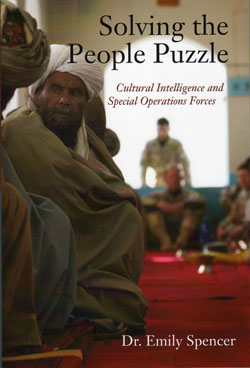As I landed a couple fo hours ago in Casablanca coming from Dubai, I couldn't help but have some reflexions on the horrid customer service provided in the Moroccan airport. Coming across an exasperated businessman from Bangladesh, I realized that such lack of consideration for the customer is not only a failure to comply with the rules of decency every airport ought to implement, but also a grave attack on potential foreign investments that are a crucial component for recovery in the current shaky economic conditions...
How is Morocco shedding away foreign Investments
How is Morocco shedding away foreign Investments
In these times of financial and economic uncertainties, the
world is striving to power boost growth and encourage investments in order to
cut loose the ongoing nightmares of the ailing banking system and its
repercussions on the world finance. Yet, as these efforts to encourage a quick
recovery are spreading, and indeed populating most of world leaders speeches
and TV apparitions, one country is lacking behind: Morocco.
Although most observers might claim otherwise, Morocco’s
approach and methodology in restructuring its economy and lifting the purchase
power of its citizen is all but comprehensive and sound. The gross mistake the
Moroccan authorities have been conducting throughout the years, and more acutely
now, is that the government tries to induce a top down growth through
encouraging multibillion dollars investments instead of building a strong
investment base powered by the middle class and small businesses. The last
visit of the king to the Gulf countries, a recurrent theatrical play where the
monarchy squeezes billions of dollars from the Gulf royalties whenever the
domestic economics are not adding up, is an astounding example of such state
practice of top down investment. Channeling investments and projects by Gulf
corporations to Morocco might be of short-term benefits since it creates direct
jobs in construction or tourism; yet, most of these foreign ventures end up
frozen due to the absence of consumers of such products, and deficiency of
completive small businesses that can create the necessary environment for a
full investment to operate. What I mean by completive small businesses are
those enterprises that offer services and products that a Hotel cannot offer,
as simple as that. Luxurious resorts and Hotels are a product locals cannot
afford, a fact not hard to miss on since the market these investments target
are foreign. This poses the question: will a businessman, celebrities or high-income
consumers visit Morocco on the sole basis of staying in a luxurious hotel? What
draws outsiders are unique travel experiences that are prosperous for them to
initiate potential ventures, that is to say a compelling cultural setting, the
existence of advantageous telecommunication services and infrastructure, the flourishing
of small businesses that offer skilled technicians and resources and the
presence of quality transportation firms. Thus begging for Gulf investments
without laying the foundations for these very ventures to thrive is pouring
water on the sand. A state that cannot cope with rainfalls, rising criminality,
poor consumer purchase power, degrading middle class and fiscal irregularities
and fraud is far from succeeding in getting the economic house back in order
through a couple of foreign investors.
Another flaw in Moroccan approach to economic growth is the
discrepancy in treatments offered to foreign investors. While western investors
are treated with the greatest forms of respect and privilege, Asian
entrepreneurs are disregarded as casual travelers who have to pass through the
hardships and tortuous airline and airports process, a process that the
Moroccan airports made the worst possible in any sovereign nation. Lost
luggage, hours in line for the passport checks, empty cubicles meant to be
filed by airport officers and no regards for customer service… many of the
realities of Moroccan airports that would push away any investor from thinking
about traveling to Morocco. These are the basic services that a state should
prioritize if it seriously considers drawing foreign cash to the mainland.
Successful investment strategies are those that care about the small businesses,
encourage entrepreneurship and facilitate foreign knowledge and expertise flow
to the domestic market. If a nation cannot offer decent treatment for travelers
and outsiders going through its airport –travelers who after all are walking
wallets that can be tapped into -, then there is no premise for talking about
economic recovery through foreign investments. It is saddening to see on one
hand great nations deploy resources, efforts and time to empower small
businesses as the ultimate path to recovery, and on the other hand witnessing
one’s country waste money in lobbying and embassy held dinners to attract
investments that will not impact the domestic economic landscape, because the
state didn’t care enough to build a favorable base for these investments to
flourish upon. The true change starts from within, not through aesthetic
appliances to hide inherent flaws in the domestic scene, thus if Morocco is to
ever join in the global effort to regenerate wealth and growth, it should start
by permitting small businesses -domestic and foreign- to prosper, not by
helping them financially, but simply through fulfilling the tasks every state
is elected to accomplish in the first place.
Mohamed Amine Belarbi









